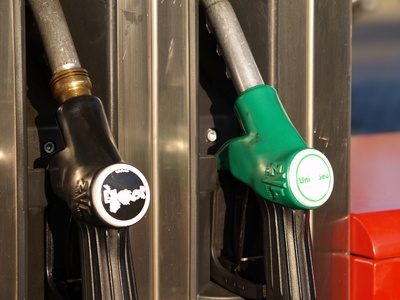
If your owner's manual says your car requires premium fuel, you might be wondering why. You probably have noticed the higher price of premium fuel, and perhaps that has made you consider alternatives. With gasoline prices so high, it might be tempting to use regular-grade fuel, but there are specific reasons why the manufacturer instructs you to use premium gasoline.
Specific engines require premium fuel. There are two types of engines made today: high-compression and lower-compression. A high-compression engine requires premium-grade fuel. This relates to the power of the fuel used inside the combustion chambers, according to Car Talk, a PBS radio show.
A premium fuel, since it compresses at a higher power, reacts differently when it is combusted inside the engine. The combustion occurs at a much higher rate and velocity, so the lifters and pistons in a high-compression engine are more finely tuned and designed to operate with this in mind, requiring the premium fuel.
If you use premium fuels in your engine, the car is allowed to operate as designed. It will accelerate faster (up to half a second faster in a 0-60 mph acceleration, according to the article "Do You Really Need Premium?" at Edmunds.com) and will run more smoothly. In addition, since the engine is built for the higher-quality fuel, it will run more efficiently. That means you will get better mileage per gallon with premium fuel.
Sometimes a manufacturer requires that premium fuel be used in its vehicles. Other times, the fuel is just recommended. If it is required, your engine could sustain damage to vital parts, start knocking or vibrating if you use lower-grade fuel. When a premium-grade fuel is recommended but not required, the car is designed to run on regular fuel. However, the car still might experience a reduction in power and acceleration, as well as fuel mileage, unless you use premium fuel.
Premium fuel costs more than regular fuel, as much as 30 cents per gallon in 2010. That seems like a big price to pay, especially for a small gain in performance. Yet, with some gains in mileage per gallon and the possibility of improving your engine life, there are more cost effects to consider.
It is not recommended to switch to a lower grade if your car calls for premium gas. Drivers might decide to test the use of both fuels if they are unsure of which to use. If they use premium gas and get better mileage and better performance, it makes sense to stay with this type of gas. If the use of lower-grade fuels often leads to vibrations or performance issues, switch to premium fuel. Engine problems are costly and far outweigh the small savings at the pump offered by regular gasoline.